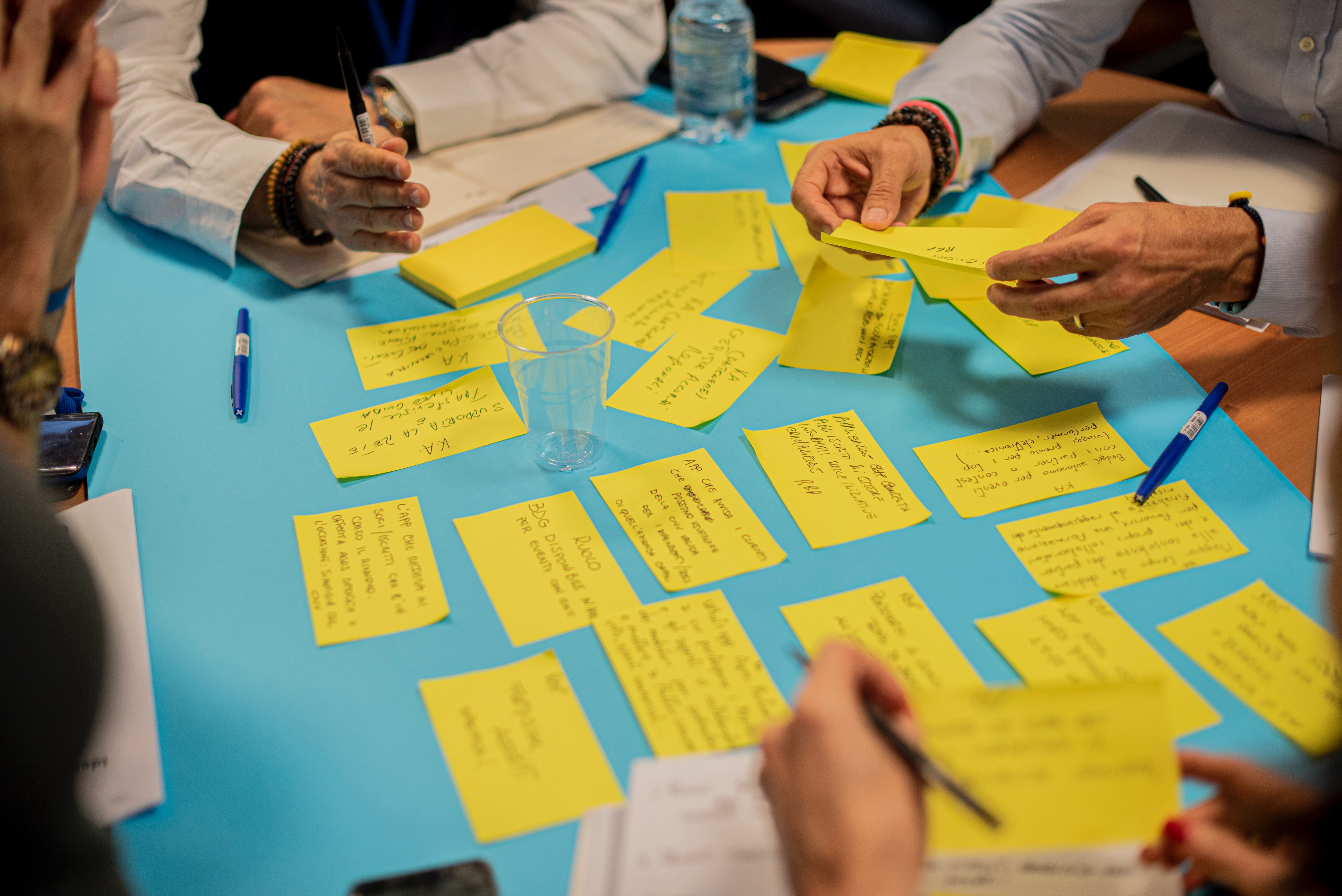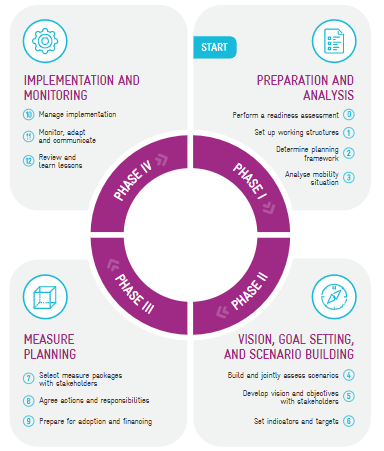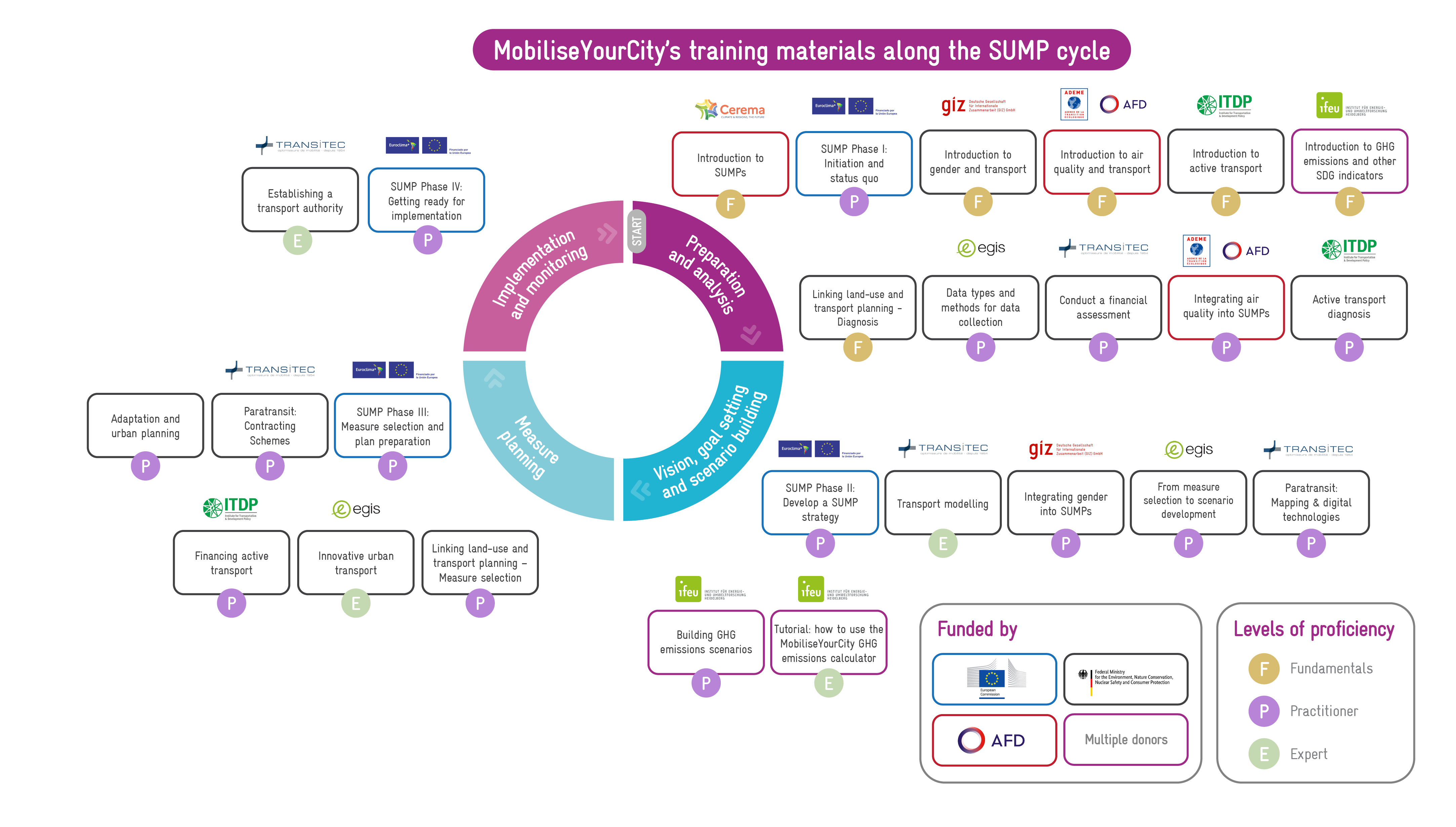Introducing MobiliseYourCity’s Training Catalogue

To scale and facilitate the capacity-building process, MobiliseYourCity developed a full catalogue of training materials, encapsulating the most important knowledge about Sustainable Urban Mobility Planning.
A Sustainable Urban Mobility Plan is a capacity-building enterprise
To master sustainable urban mobility planning (SUMP), public authorities must acquire a wide range of capacities. These include first and foremost knowledge about the principles of this specific planning approach, its difference vis-à-vis traditional transport planning, the potential benefits that it may bring to a city’s transport system, economy, environment, and quality of life and, most importantly, the SUMP cycle, i.e. the steps and phases to be performed throughout the planning process (see MobiliseYourCity’s Frequently Asked Questions about SUMPs).

Because sustainable urban mobility planning is a relatively new approach, decision-makers and practitioners with the mandate to develop a SUMP must learn nothing less than how to develop a SUMP. This is no easy feat. As the graphic presented above shows, every single step demands its own methodology, resources, and skills. For example, the establishment of working structures (Step 1), consists in creating an institutional set-up to manage the entire planning process at the political/strategic, operational, and tactical levels. It also entails involving and coordinating with other levels of government and sectoral departments, such as economic development, urban planning, finances, health, education, culture, etc. Not only will these established structures accompany the planning process, but, ideally, they should also be responsible for leading the implementation of the SUMP – a much longer and more complex task than the planning process itself.
Capacity needs go also beyond the SUMP methodology. SUMPs seek the strategic integration and further development of sustainable transport modes, in particular public transport (including paratransit), walking and cycling. In addition, the appropriate financial mechanisms must be identified, and Monitoring, Reporting and Verification systems set in place to enable the implementation of the SUMP.
Cities developing a SUMP will start with different levels of capacity. Some may have gained previous experience with similar activities and benefit from well-staffed and -resourced transport authorities. Others, in turn, may not be so fortunate, lacking both experience, knowledge, and a well-functioning institutional basis. This is why it is so important to conduct a capacity needs assessment at the very beginning of a SUMP, to identify the areas that need reinforcement, the knowledge that shall be acquired, and skills that need to be developed.
MobiliseYourCity’s training catalogue

To scale and facilitate the capacity building process, MobiliseYourCity developed a full catalogue of training materials, encapsulating the most important knowledge about Sustainable Urban Mobility Planning. We worked together with implementing partners (the Agence Française de Développement and the Deutsche Gesellschaft für Internationale Zusammenarbeit), Knowledge and Network partners (ADEME, Cerema and ITDP) and consultancies (egis, ifeu and Transitec) developing SUMPs worldwide to identify and put together the most important trainings and topics that are commonly addressed when developing a SUMP.
The training catalogue consists of individual training modules, each dealing with a specific topic related to the SUMP process. For instance, the training on ‘Data types and methods for data collection’ explains the data that needs to be collected to perform an urban mobility diagnosis (Step 3), and the tools available to do so, with a specific focus on surveys (Bonus: this training module provides templates for all surveys used during the data collection process).
The training catalogue also addresses specific issues that need to be integrated in a SUMP but that do not refer to the planning methodology themselves, such as the trainings ‘Linking land-use and transport planning’, ‘Integrating gender into SUMPs’, ‘Paratransit contracting schemes’, ‘Financing active transport’, among others.
How to use these materials
The content and structure of the training catalogue is similar to a traditional capacity building program that is provided to a city in the context of Technical Assistance to develop a SUMP (in fact, many of these trainings were originally developed for specific cities developing SUMPs with support from MobiliseYourCity). As such, the catalogue can be adopted and used in its totality (i.e. as a full SUMP capacity building program), or individual trainings can be used flexibly to acquire specific knowledge or to complement similar activities, depending on the specific capacity needs of every city:
- Local authorities will acquire a thorough understanding of Sustainable Urban Mobility Plans, and how to integrate specific topics into the planning process, such as public transportation (including paratransit), active mobility, financing, and MRV.
- National governments can use the training catalogue to build their own technical units responsible for supporting cities develop SUMPs nation-wide (for example as part of a National Urban Mobility Policy or Investment Programme).
- Development organisations and consultancies providing technical support can enhance their knowledge and complement their own activities related to SUMP development.
- Mobility practitioners and students interested in and working on SUMPs can prepare to embark on the Sustainable Urban Mobility Planning journey when duty calls.
Each training module follows the same logic and structure and has been designed in such a way that it can easily be translated into an individual training session:
- An annotated slide deck with the content of the training ready to be used. Further methodological guidance to conduct a training session using these materials is included in the margins of the slides, while the note section contains complementary information to the content of each slide.
- An interactive exercise including explanation and potential templates for its execution.
- An agenda for participants as a template to present the date and venue, the session description, learning objectives, speakers’ list and agenda of the session.
- A presenter’s / trainer’s agenda containing a detailed outline of every item inI the agenda.
- A quiz of multiple choice that can be integrated into the session or used individually to the test the knowledge acquired.
- Additional literature and links to online resources.
Click here to download MobiliseYourCity’s Training Catalogue. All materials are free of charge. To access them, reach out to us at contact@mobiliseyourcity.net or Nicolas.cruz@mobiliseyourcity.net
MobiliseYourCity’s Training Materials function as a complement to MobiliseYourCity Tools and Methodologies. Click here to access our methodological offer.